Home \ Preschool of the Future \ Preschools of the Future in Zhenkang County, Yunnan
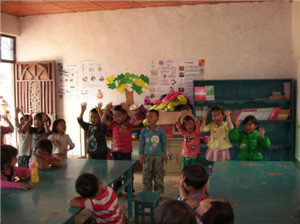
Project Location
Zhenkang County - a nationally designated poverty county - is located in Lincang City in the south-western part of Yunnan province, bordering Myanmar on the western side. 98% of the region is mountainous. The total population is 170,000, with 23 ethnic minorities, including Yi, Wa, Dai, De’ang, Bulang, Lisu, Lahu, Miao and many more. Ethnic minorities constitute 31.7% of the total population in Zhenkang.
Being one of the 25 peripheral border counties in Yunnan, Zhenkang currently has 51,900 people living in impoverished conditions; out of this group, 15,300 people are living in absolute poverty, while 39,600 people are low income earners.The overall education resource is Zhenkang is scarce, especially in the sector of preschool education. Prior to 2003, preschool education at the township level was almost absent. There was only one county level kindergarten and an additional Mengdui factory preschool which was very small in scale. 
A baseline survey conducted by HPP rural development office in Zhenkang County in August 2008 revealed the following circumstances:
1. A large proportion of children between ages 3-5 have no access to any form of formal preschool education. They are playing in the village or alone at home during day, which could be hazardous sometimes. These children are missing out on the optimum period of investing in and developing children’s potential.
2. Due to the dispersed distribution of villages, and children living in villages far from the county centre, a large portion of children who have reached 6 years of age have still not received pre-primary preschool education.
3. There are several obstacles to rural children accessing preschool education: parents lack awareness of the importance of preschool education, sometimes they cannot afford the 30-50 yuan/month compulsory lunch fee of the preschool. In other cases there is no one from home to send and pick up the child from class.
4. Children who have not been to preschool are more likely to struggle with adapting to primary school life, some would despise school life or even skip class. Another issue is the language barrier, local ethnic minority children without prior knowledge of mandarin struggle to keep up with the classes taught only in mandarin. This further aggravates the absenteeism issue.
The survey shows: 90% of villagers consider it suitable and meaningful to establish a preschool class in their locality. Some consider it as an urgent issue. 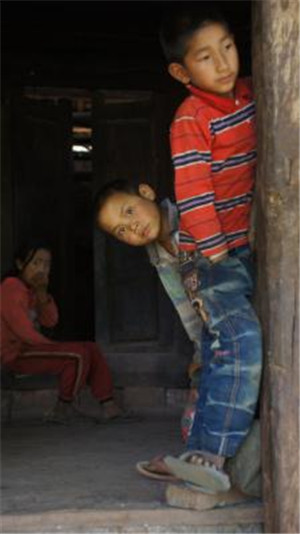
Project Initiation
In August 2008, HPP launched the Preschools of the Future project into action in Taozizhai village of Nansan township, Zhenkang County. Up until the end of 2013, the project established 40 preschool classes in natural villages of Nansan township and Mengdui township of Zhenkang county. Currently, 25 of the classes are in operation, catering to 643 students. Since the beginning of the project, a total of 2362 children have benefited from the preschool classes. 643 of them are still enrolled in the classes, 1719 have successfully graduated and entered into primary school.
Project Characteristics:
1. Participatory approach
HPP believes a community must develop endogenously, through its own capacity and efforts. In every preschool class a parents’ committee is formed. The parents’ committee guides the operations and management of the preschool class, they decide the class time and are responsible for the organization of special events.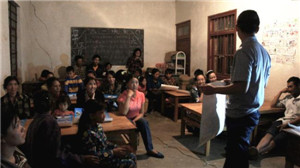
2. Mixed-age classes
children aged 3-6 share the same class, every class will have 20-30 children.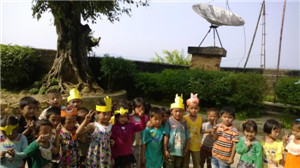
3. Community-based teachers
every class has one full time teacher and one voluntary teachers’ assistant. The preschool class teacher is selected by the parents’ committee and village leaders. Humana provides training to the teachers to help them develop their teaching skills, after initial training of 60-80 h, the annual training time exceeds more than 160 hours annually. 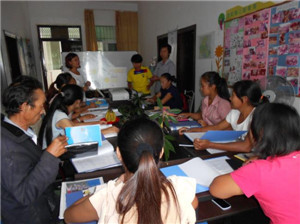

4. Renovated classrooms
The POF classrooms are established in redecorated unused buildings: empty primary schools or spot schools, village commitee venues etc. 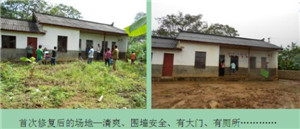
5. Nature-friendly curriculum
maximize the utilization of natural environment and locally available resources to use as teaching materials and teaching grounds. This can save on costs of purchasing teaching tools, and at the same time use what is readily available to create a “natures’ classroom”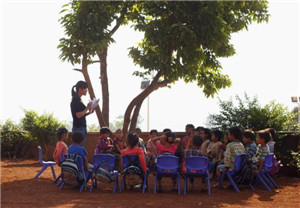
6. Experience-based lessons
5 classes daily: use your brain, exercise your body, use your hands, numbers and maths, language
6 weekly themes: storytelling, singing, adjusting to school life, experience and imagination, outdoor activities, art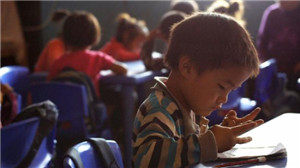
7. Child-centered approach:
child-centred teaching method which encourages the students to think, experience and make decisions independently. Children will learn from planning, doing activities, making mistakes and maturing from this process. 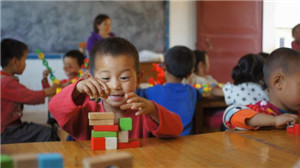
8. Hygiene awareness:
educate the children to maintain hygiene habits through the routine of washing face, washing hands, brushing teeth. In many places these cleaning habits are not habituated. Students will also learn to wash their hands after using the bathroom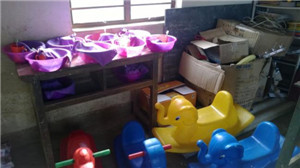
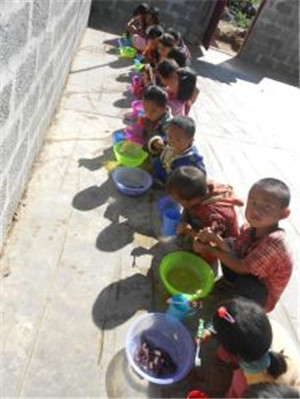
9.Social responsibility:
cultivate a sense of social responsibility so that the children are aware that they should give back to society. Not only do we organize classroom cleanings, but we also encourage children to clean up communal spaces and plant trees to improve the environment. 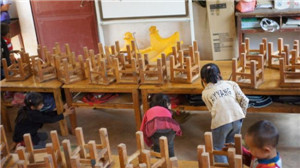
10. Child nutrition:
In most classes every morning the teachers provide breakfast for the children; this includes soy milk, fruits and egg. 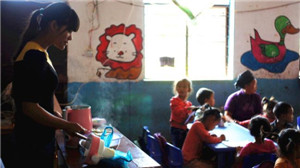
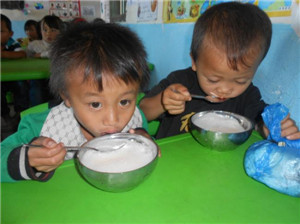
11. Child-parent interaction
we organize activities and events for parents to build relationships with their children. The activities help to cultivate a cooperative spirit for the children, they learn to enjoy going to school and also learn to interact with their parents.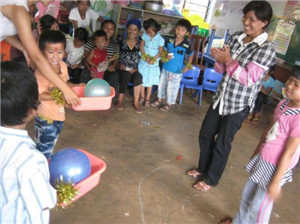
12. Parents’capacity-building
monthly one workshop is conducted for the parents, together we explore topics on child education, health and hygiene, nutrition, poverty issues, social responsibility and Global Warming. 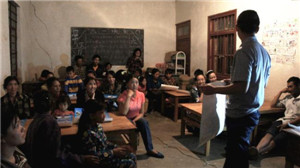
Project updates:
Road to preschool (http://www.hppchina.org.cn/en/newshow.asp?id=964)
“Community Heroes” zoom in on rural preschool education (http://www.hppchina.org.cn/en/newshow.asp?id=987)